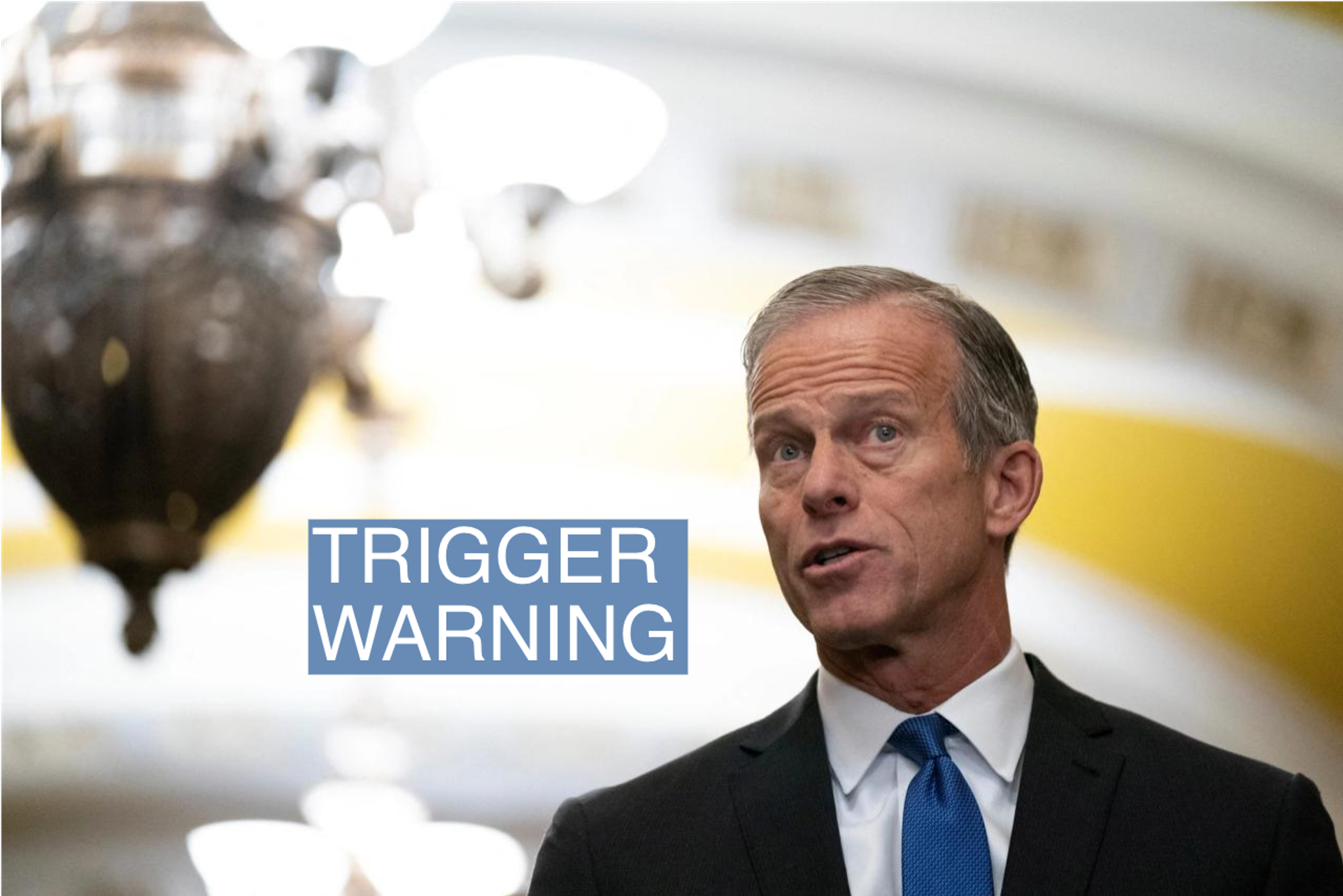The News
Bipartisan talks on border enforcement are getting more turbulent over a Senate GOP demand to sharply reduce border crossings — and possibly hold up delivery of Ukraine aid as a way to compel the White House to stick to any agreement.
Illegal crossings at the US-Mexico border have reached record highs, surpassing two million this year so far with Venezuelans making up the largest group of migrants.
Sen. Thom Tillis, R-N.C. told Semafor that any acceptable deal would seek to cut those by at least half, which would still leave them higher than under the Trump administration. “I try to be a reasonable guy,” he said.
Two Senate aides briefed on the talks said discussions are hitting a snag over how reductions in border crossings would be measured. In addition, Republicans have discussed imposing penalties, like withholding the delivery of military supplies to Ukraine, if the White House fails to hit its border crossing targets.
“If you don’t reduce the numbers of illegals coming across the border, there’s no money for new Stinger missiles or F-16’s or whatever the case might be,” Sen. Kevin Cramer, R-N.D., told Semafor, adding the measure would be meant to “discipline enforcement” with the White House.
Top Republicans, including Minority leader Mitch McConnell, have warned that the GOP is unlikely to back another round of military aid to Kyiv unless the bill also includes a significant border security measures for the U.S. Sen. John Thune, R-S.D., the second-ranked Senate Republican, told Semafor that “there isn’t anything that has been settled” when it comes to the idea of tying Ukraine assistance to specific border benchmarks.
“There is a concern — and a valid one — that anything we pass won’t be enforced by this administration,” he said. “And if you don’t have some appropriate metrics and consequences, you can put all the best policy out there but they’ll just ignore it.”
In this article:
Joseph’s view
In some ways, Republicans are proposing a new twist on an old Capitol Hill idea. During the Gang of Eight immigration talks in 2013, Senators discussed including a “trigger” that would open up a path to citizenship for undocumented residents only once the administration could certify that the border was secure. But tying something unrelated to immigration, such as Ukraine aid, to a measurable decline in border crossings would be a novel move.
“I’ve never heard anything like that before,” Tom Jawetz, a former deputy general counsel of the U.S. Department of Homeland Security who’s now a senior fellow at the liberal-leaning Center for American Progress, said.
Democrats would also be taking a major gamble if they agreed to condition aid to Ukraine on a sharp drop in border crossings that might never materialize. It’s not clear many have an appetite for such an unusual bet.
“Ukraine is on the front lines for us and we have to find a way not to fail in our obligation to ourselves and to the rest of the world to fund Ukraine in our own interests,” Sen. Michael Bennet, D-Colo., a Democratic negotiator, told Semafor. “The battlefield Putin is trying to win on is Capitol Hill.”
Room for Disagreement
Tillis suggested that, while Democrats might not love it, adding a border security trigger to the package could help win votes in the GOP-controlled House, where Republicans are less gung ho about Kyiv’s war effort.
“Keep in mind, this is not Chuck Schumer setting the agenda for the House. We’ve got to deal with the House,” Tillis told reporters. “And if people want this funding, they got to take that into consideration.”
